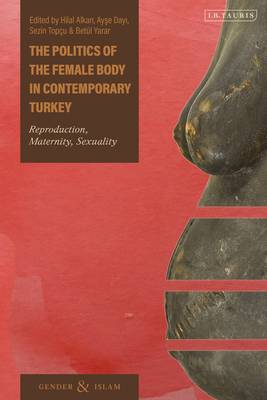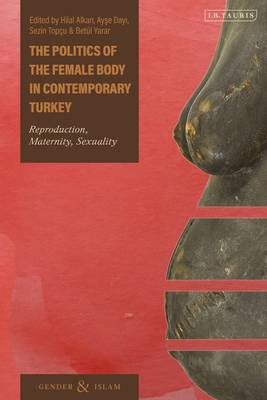
Bedankt voor het vertrouwen het afgelopen jaar! Om jou te bedanken bieden we GRATIS verzending (in België) aan op alles gedurende de hele maand januari.
- Afhalen na 1 uur in een winkel met voorraad
- In januari gratis thuislevering in België
- Ruim aanbod met 7 miljoen producten
Bedankt voor het vertrouwen het afgelopen jaar! Om jou te bedanken bieden we GRATIS verzending (in België) aan op alles gedurende de hele maand januari.
- Afhalen na 1 uur in een winkel met voorraad
- In januari gratis thuislevering in België
- Ruim aanbod met 7 miljoen producten
Zoeken
The Politics of the Female Body in Contemporary Turkey
Reproduction, Maternity, Sexuality
€ 228,95
+ 457 punten
Omschrijving
Under the leadership of the Justice and Development Party in Turkey came new regulations about reproductive rights, family and gender policies. Women's central role in reproductive and domestic work was swiftly reaffirmed as a state value and policies surrounding issues such as abortion and IVF were newly debated. Taking Turkey as the case study, this is the first book to examine the various ways in which neoliberal modes of governing women's bodies come together with conservative and authoritarian measures.
The book is divided into three parts - the 'reproductive' body, the 'maternal' body and the 'sexualized' body - to explore the three main governmental representations of, and interventions into, the female body. Topics for discussion include: the increasing control of poor or ethnic minority women's fertility, the expansion of IVF and egg markets, the commodification of pregnancy and motherhood through surrogacy, and the privatization of gynaecological and obstetrical care. The contributors argue that conservative and authoritarian forms of government lead to a direct assault on women's bodies, health and sexuality by legitimizing corporeal control, sexual violence and patriarchal conceptions of religious morality. While focusing on the Turkish case, the editors also propose analytical tools for a broader understanding of the recent changes in the politics of the female body in various contexts such as Eastern Europe, Latin America and the United States.
The book is divided into three parts - the 'reproductive' body, the 'maternal' body and the 'sexualized' body - to explore the three main governmental representations of, and interventions into, the female body. Topics for discussion include: the increasing control of poor or ethnic minority women's fertility, the expansion of IVF and egg markets, the commodification of pregnancy and motherhood through surrogacy, and the privatization of gynaecological and obstetrical care. The contributors argue that conservative and authoritarian forms of government lead to a direct assault on women's bodies, health and sexuality by legitimizing corporeal control, sexual violence and patriarchal conceptions of religious morality. While focusing on the Turkish case, the editors also propose analytical tools for a broader understanding of the recent changes in the politics of the female body in various contexts such as Eastern Europe, Latin America and the United States.
Specificaties
Betrokkenen
- Uitgeverij:
Inhoud
- Aantal bladzijden:
- 304
- Taal:
- Engels
- Reeks:
Eigenschappen
- Productcode (EAN):
- 9780755617401
- Verschijningsdatum:
- 17/06/2021
- Uitvoering:
- Hardcover
- Formaat:
- Genaaid
- Afmetingen:
- 156 mm x 234 mm
- Gewicht:
- 594 g

Alleen bij Standaard Boekhandel
+ 457 punten op je klantenkaart van Standaard Boekhandel
Beoordelingen
We publiceren alleen reviews die voldoen aan de voorwaarden voor reviews. Bekijk onze voorwaarden voor reviews.








